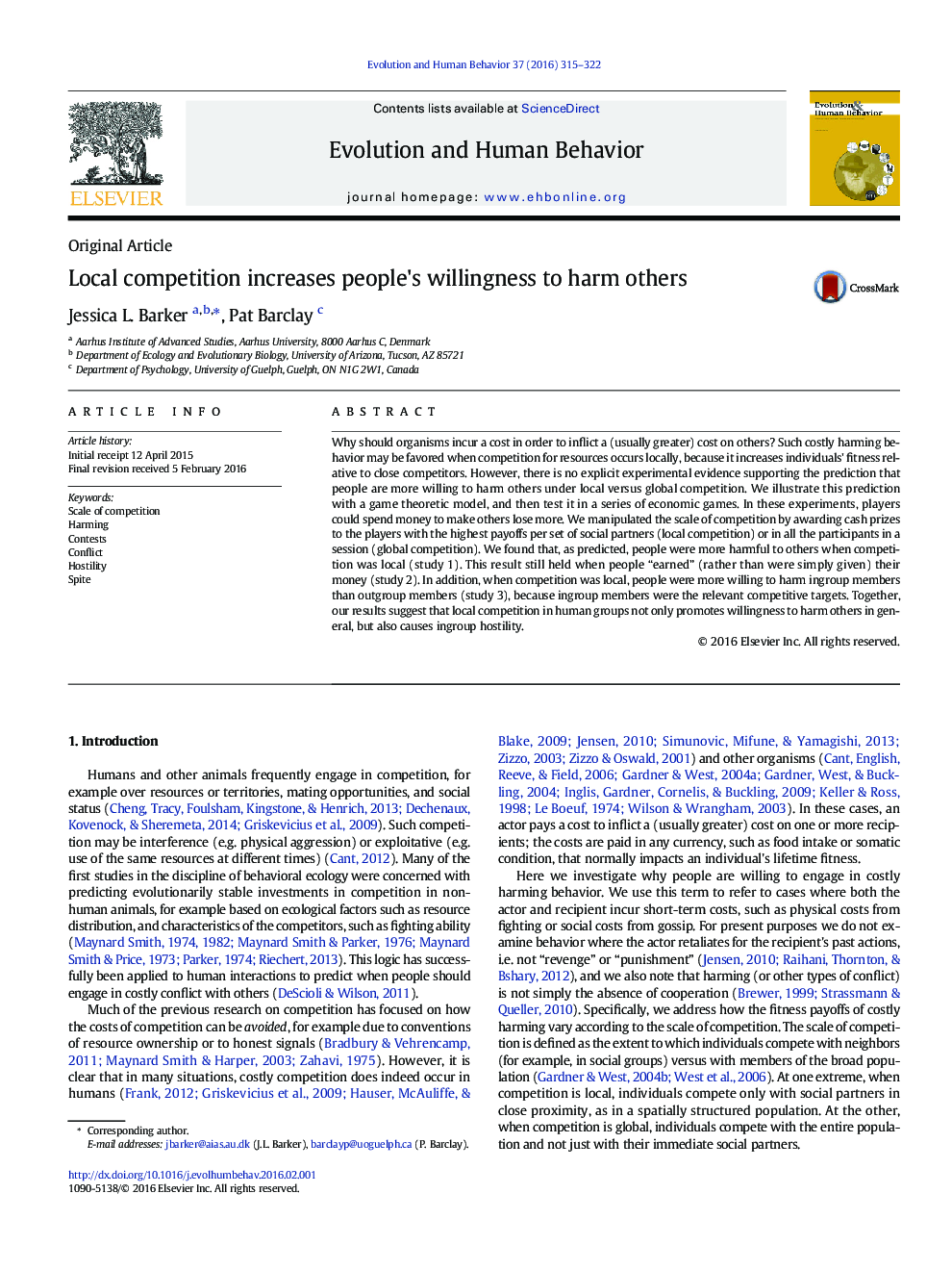| Article ID | Journal | Published Year | Pages | File Type |
|---|---|---|---|---|
| 943125 | Evolution and Human Behavior | 2016 | 8 Pages |
Why should organisms incur a cost in order to inflict a (usually greater) cost on others? Such costly harming behavior may be favored when competition for resources occurs locally, because it increases individuals' fitness relative to close competitors. However, there is no explicit experimental evidence supporting the prediction that people are more willing to harm others under local versus global competition. We illustrate this prediction with a game theoretic model, and then test it in a series of economic games. In these experiments, players could spend money to make others lose more. We manipulated the scale of competition by awarding cash prizes to the players with the highest payoffs per set of social partners (local competition) or in all the participants in a session (global competition). We found that, as predicted, people were more harmful to others when competition was local (study 1). This result still held when people “earned” (rather than were simply given) their money (study 2). In addition, when competition was local, people were more willing to harm ingroup members than outgroup members (study 3), because ingroup members were the relevant competitive targets. Together, our results suggest that local competition in human groups not only promotes willingness to harm others in general, but also causes ingroup hostility.
